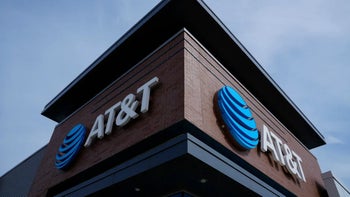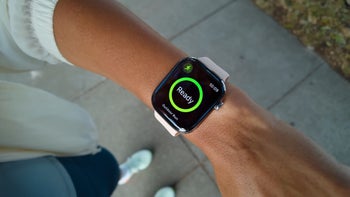What Google does with the iPhone is anti-competitive according to a lawsuit filed by the DOJ

If it feels as though the walls are closing in on Google, that's because they are. Today, the New York Times reported that the U.S. Justice Department filed a lawsuit in Washington D.C. Federal Court charging Google with anti-competitive behavior in regards to search and search advertising. The government says that Google was able to illegally run a monopoly over search by signing multiple contracts and other agreements that enabled Google to keep the competition out of search advertising.
Google's alleged anti-competitive behavior is the subject of a lawsuit in Federal Court
Among these contracts is the lucrative deal signed by Google and Apple that allows Google to have the default search engine on the iPhone. In return for this prime piece of mobile real estate, Google pays Apple billions of dollars. This reveals that Google is making a ton of bread from its search advertising; otherwise, why would the company be so quick to pay billions to Apple? The amount that Google pays Apple to be the default search engine on the iPhone is reportedly $7 billion; the amount Google makes from the arrangement is said to be $25 billion. The lawsuit mentions how contracts like the one with Apple keep innovation and competition down. Besides the iPhone, Google pays billions in aggregate to be the default search engine on phones made by LG, Motorola, and Samsung. Such deals are also made by Google with wireless carriers such as AT&T, Verizon, and T-Mobile. And Google Search also is the default search engine on mobile browsers from Mozilla, Opera, and UCWeb. Some of these contracts prohibit the firms agreeing to the deal with Google from offering Google Search rivals to consumers.

The U.S. government has filed a lawsuit against Google alleging anti-competitive behavior
"Google “has maintained its monopoly power through exclusionary practices that are harmful to competition," says the man who led the investigation, Deputy Assistant General Jeffrey Rosen. He added that "Google is the gateway to the internet and a search advertising behemoth." The suit notes that for a general search engine like Google Search, being the preset default listing is the best mode of distribution, especially on mobile devices where default apps rarely get changed by consumers. In the states, advertisers pay Google $40 billion each year to place ads on Google's search results.
In the lawsuit, the government says that Google's agreements cover nearly 60% of all general search queries. Half of the remaining amount comes from Google O & O (owned and operated) properties such as the Chrome browser. The latest data cited by the government says that over the last few years, Google accounted for over 90% of all general search queries in the U.S. and 95% on mobile devices. Pointing out how dominating the company is in search, the U.S. notes that in addition to being a noun used to identify the firm, Google is also a verb that means to search the internet. For example, when someone is discussing someone or something with you and determines that you have no idea what they are talking about, they might "zing" you by telling you to Google it. The company says that it has many strong competitors including Amazon's website where consumers can search for information on products.
Attorney General William Barr has been taking an unusually keen interest in the case according to those in the know, setting tight deadlines for prosecutors working on the case. Two weeks ago, a Democratic congressional staff report called Google, Apple, Amazon, and Facebook monopolies. The report stated that Google has monopolies in Search and Search-advertising. The report added that "Numerous market participants analogized Google to a gatekeeper that is extorting users for access to its critical distribution channel, even as its search page shows users less relevant results." Google said that its free products such as Search, Maps, and Gmail are the result of billions of dollars invested in research and development. Google says that it competes fairly in an industry that is fast-paced and competitive and that allegations against it from rivals are inaccurate.
Considering that the government's antitrust case against Microsoft took over 10 years to reach a conclusion, it might be some time before the suit against Google is decided. Google says that it will fight back and investors seem to relish the fight. The shares of Google parent Alphabet are up 1.8% or $27.59 to $1,562.20.
Follow us on Google News













Things that are NOT allowed:
To help keep our community safe and free from spam, we apply temporary limits to newly created accounts: